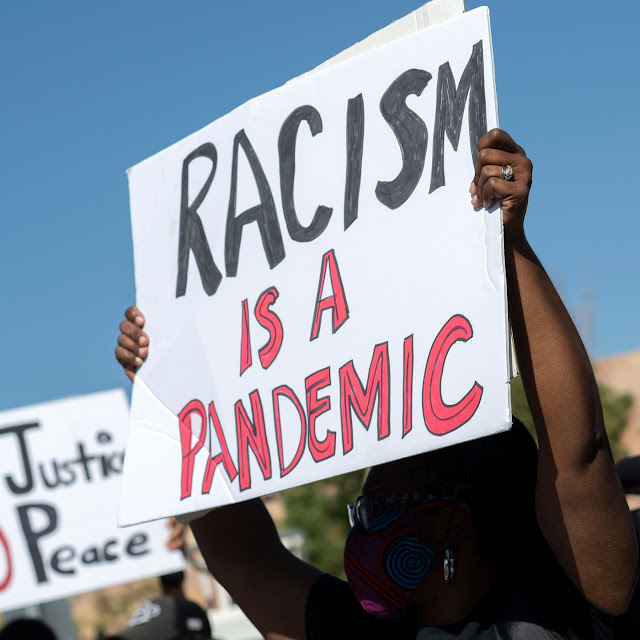We talk about race and racism all the time, and yet the simple question lingers not only unresolved but unaddressed: how do we actually end racism? I lack the wisdom and space to bite off that whole question but wanted to nibble at one corner of it by considering the interplay between the personal and structural aspects of racism.
For far too many of us, when confronted with the issue of racism, we only consider the personal. We think it's about not hating people who look different than us. Which, for most of us, means that we look with horror at hate crimes and blatant aggressions, and perhaps pat ourselves on the back for not being like that. We also wonder why it's so hard to end racism, and perhaps tire when it keeps getting brought up. I mean, can't we all get along?
This is the attitude of the person who can't see, or is unwilling to see, the systemic aspects of racism, which is to say that racism is baked into the very foundations we stand on: our system of government, our economic structure, the ways we allocate resources and move about the world.
When people I admire and respect talk about ending racism, they often talk about dismantling it. Which is consistent with the notion of it having a structural dynamic to it: to end something that is built into the very foundations of our lives, we have to take apart those foundations and build them back up in a more just way.
If you see racism as solely a personal thing, it is probably because the stench and harm of structural racism doesn't directly affect you. Which means that language like "dismantle" and "rebuild" and even "revolution" are terribly jarring. Of course I would say I despise racism, because what I want is for everyone to love everyone. But if ending racism means shaking the foundations I've built my comfortable life upon, that's scary.
Guess what? That's what it's going to take to end racism.
I said earlier that if you act like this, it's probably because structural racism doesn't directly affect you. Ah, but it does. We are all standing on a foundation that has rot in it. We may have a respectable, successful, and easy life on top of it. But there will be a reckoning.
Structural racism may not torment and lash out at you on a daily basis like it does with many people I know. But it is eating away at the very foundations beneath us.
It is distasteful to suggest that we focus on ending racism only because it represents a form of preventative maintenance, just like we tend to our bodies and relationships and organizations and homes in ways that subscribe to the belief that "an ounce of prevention is worth a pound of cure." We ought to focus on ending racism because racism is evil. And we ought to focus on ending racism because racism harms many around us in profoundly infuriating ways.
But there is no "us" and "them" when it comes to ending racism. Because we all stand to gain when we choose to open our eyes to the fact that some of us are standing comfortably and others of us are not, and that all of us are standing upon a foundation that is rotting and that needs to be addressed.



No comments:
Post a Comment